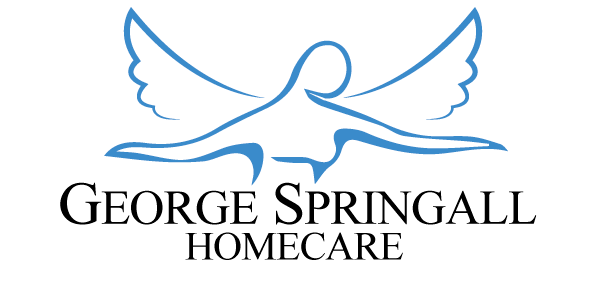
MOTOR NEURONE DISEASE
Living with MND means constant adjusting and changing your life and your environment. This can put a lot of strain on the person living with MND and their family and friends.
Coping with everything after being diagnosed with MND can be accompanied by anticipation, uncertainty and anxiety about the future. Making the changes and getting used to the new lifestyle can put real pressure on the person and their family and can mean redefining all responsibilities and roles. At George Springall Homecare, we understand these challenges and can provide care and support to help you and your family through the difficult times.
What is MND?
Motor neurone disease (MND) is a progressive disease that attacks the motor neurones, or nerves, in the brain and spinal cord. This means messages gradually stop reaching muscles, which leads to weakness and wasting.
MND can affect how you walk, talk, eat, drink and breathe. However, not all symptoms necessarily happen to
everyone and it is unlikely they will all develop at the same time, or in any specific order.
Although there is currently no cure for MND, symptoms can be managed to help you achieve the best possible quality of life.
Common symptoms and risks
Pain and discomfort: are not caused directly by MND, but may have several indirect causes. Your GP should be able to prescribe a suitable painkiller.
Muscle cramps and spasms: may be relieved by changing position when relaxing in a chair or bed. If this is not helpful your doctor may be able to provide a muscle relaxant.
Stiff joints: can be helped with gentle exercise. A physiotherapist will be able to determine an exercise programme appropriate for your needs.
Incontinence: is not usually associated with MND, but may occur if mobility is restricted and getting to the toilet becomes more difficult. Your occupational therapist and specialist nurse can advise you if this is a problem.
Bowel problems: are not usually caused directly by MND, but constipation may occur due to restricted mobility and/or changes to diet. Increasing fluid and fibre may help, or ask your doctor to prescribe a laxative. Diarrhoea can sometimes happen with a severely constipated bowel. Ask your district nurse or GP for advice.
Speech and communication issues: occur for some people living with MND. A speech and language therapist (SaLT) can help with techniques and suggestions for communication aids.
Eating and drinking difficulties: may become an issue if swallowing is affected. A speech and language therapist (SaLT) can help with techniques and a dietician can advise on changes to diet or equipment to help maintain calorie intake.
Saliva and mucous: may cause issues if problems occur with swallowing. Saliva may pool in the mouth or it may become thick and sticky. In both cases your GP will be able to prescribe medication to help.
Coughing and a feeling of choking: may occur as a result of food or saliva becoming lodged in the airway.
A speech and language therapist (SaLT) can teach you techniques to help manage these episodes.
Breathing: Respiratory muscle weakness affects most people with MND. When this happens you will need a breathing assessment from a respiratory consultant.
Cognitive changes: may occur for some people living with MND, where difficulties with memory, learning, language and poor concentration may be experienced. This is commonly known as cognitive change. Some of these effects may be quite subtle, while for others the change can be more pronounced and noticeable.
Loss of the ability to control muscles increase the risks of:
-
Pressure sores
-
Stroke from sudden surges in blood pressure
-
Injury from uncontrolled muscle spasms
Our support and care
George Springall Homecare provides dedicated and experienced staff to help you maintain your quality of life and support you and your family through the difficult times. We create a specialized care plan that focuses on meeting all your needs. We support you set up realistic goals you wish to achieve and we are there to help when ever you need through out your journey to achieving your goals.
This might include:
-
helping with personal care and getting you ready for the day or for a good night sleep
-
catheter care and continence management to maintain your dignity and comfort
-
prompting or administering your medication to manage your symptoms
-
assisting with nutrition and hydration to keep you healthy
-
assisting with routine household chores and shopping so your home life is as you would like it to be
-
emotional or social support to keep you connected to the people who are important to you
-
support with rehabilitation to get back to a normal life and independence
Further information and support is available from the MND Association.
Contact us to discuss an MND care and support service for you.


